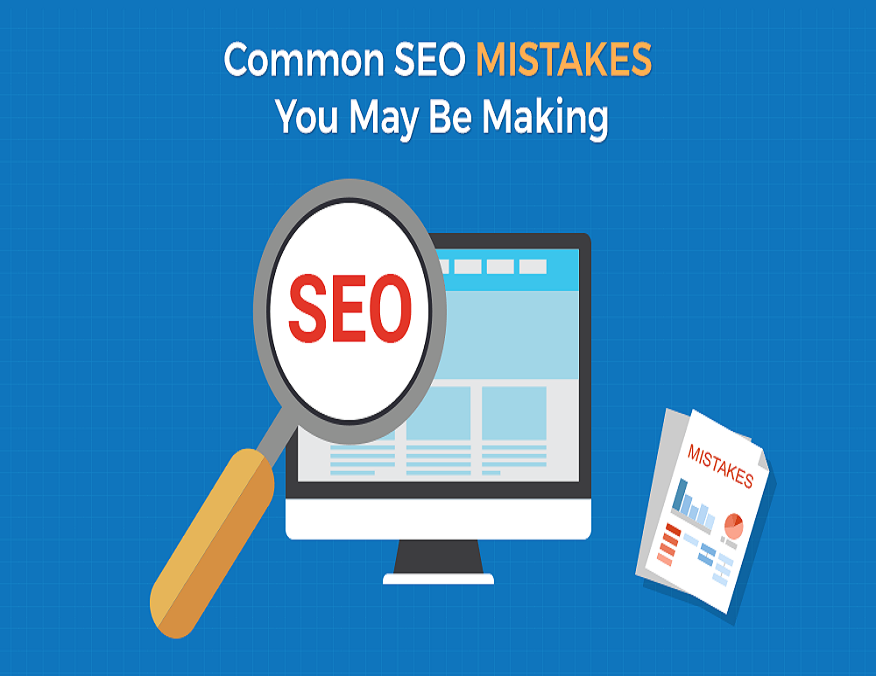
Unfortunately, many still make mistakes and do not optimize their website at all or poorly. We show you typical mistakes that can be easily avoided and how to make your SEO more effective with little effort.
Search engines are an important factor for sales and especially for new customers. Being found on the internet is sometimes one of the biggest success factors. Unfortunately, many companies still make mistakes and waste their own opportunities. Good SEO helps lead your website to success, as 78% of Google clicks are on organic “natural” search results.
Here are some of the biggest mistakes most businesses make when it comes to search engine optimization (SEO)
1. Underestimating SEO or not doing it
Search engines are among the most used applications on the internet and occupy a central place in our behavior on the internet. With a market share of over 90%, Google is the market leader and each person performs an average of 100 searches per year. This means that search engines are also an important success factor for companies.
Due to the importance of search engines, resources must also be spent to take this into account. In particular, BEFORE creating a website, you must plan a keyword strategy and appropriate SEO measures!
2. Personalized search results as a deception
Since 2009, Google has offered each user a personalized search result. This means that websites you visit often are automatically ranked higher. But what can be an advantage for you personally is the distortion of the actual ranking. So you either have to disable custom search or use SEO tools.
3. Multiple domains without 301 redirects compatible with SEO
Many companies and website operators have several domains that link to one website (meine-seite.de, meine-seite.de, meine-webseite.de, etc.). The problem is that without a 301 (Permanently Moved) redirect, Google doesn’t know which page is the correct one. What can happen is that the redirects, backlinks as well as the Google ranking deteriorate or are distributed between the domains.
But if you set up a 301 redirect, you’re telling Google that the other domains are all permanently pointing to the one correct domain (selected earlier) and sending their redirects there.
4. No control over your own CMS and shop system
Often, agencies or even vendors advertise that shops and websites are fair for SEO. However, this can often lead to duplicate (internal) content or problems with wrong dynamic URLs, too long titles and titles, or wrong or bad internal links that are unfavorable or even harmful to search engines.
Many of these errors can be optimized with personal maintenance in the CMS itself or with the help of plugins and add-ons. This can already significantly improve the search position of the person. Some modifications, however, must be done by a programmer, since they interfere a little deeper in the system and are also discussed with a professional.
5. Misusing the “keywords” meta tag
Many still know from old SEO myths that this keyword repository should be effective. It doesn’t hurt, but it’s not a ranking factor and so it’s best to pay attention to the correct keyword filing for content, meta description, title, etc.
6. Bad linking and bad backlinks
Backlinks to a website from these “link aggregators” are usually not helpful or even hurt rankings. Basically: good backlinks are links that users click on.
It is therefore important to establish good links that are also linked by visitors, clicks and also by businesses. It helps to create quality and useful content.
7. Not enough good content
As described earlier, it is important to have good links. Links are easier to build if the content is good and relevant. It is therefore really important to send these signals to Google by providing useful content. Businesses need to understand that there are generally two different types of content.
This type of content has a neutral and useful component and must offer added value. This type of content is usually shared more often and is therefore a strong signal for rankings, because we are offering content that we would normally pay for.
The content is specifically oriented towards products, offers or services and gives more of a feeling that you have to pay money because you only see the advertisement. These contents are less or not related at all and are therefore rather bad ranking signals.
In general, therefore, you should always decide to produce content from the first group that people actually read and distribute.
8. Internal linking with the wrong keywords
If you want to be found for a keyword, you also need to design internal links (i.e. links to your own website) to return correct text (anchor text ) to the appropriate pages. It must therefore consist of exactly the keyword for which you want to be found. The link texts are far too general, such as “About us”, “Company”, “Products”, “Shop”, “Price”.
9. SEO is not a project – SEO is a process
Search engine optimization is often seen as a one-time project. We forget that the Internet is like an organism and that, like everywhere, there are also trends thanks to new possibilities. Competitors change, customers change and demand changes too. SEO must therefore also change and improve constantly.
The easiest way is to imagine the website as a sportsman and SEO as training. Only by training regularly can you achieve good long-term success and also be “fitter” than the competition.

